Turning women’s dreams into startups: meet Chandell Stone
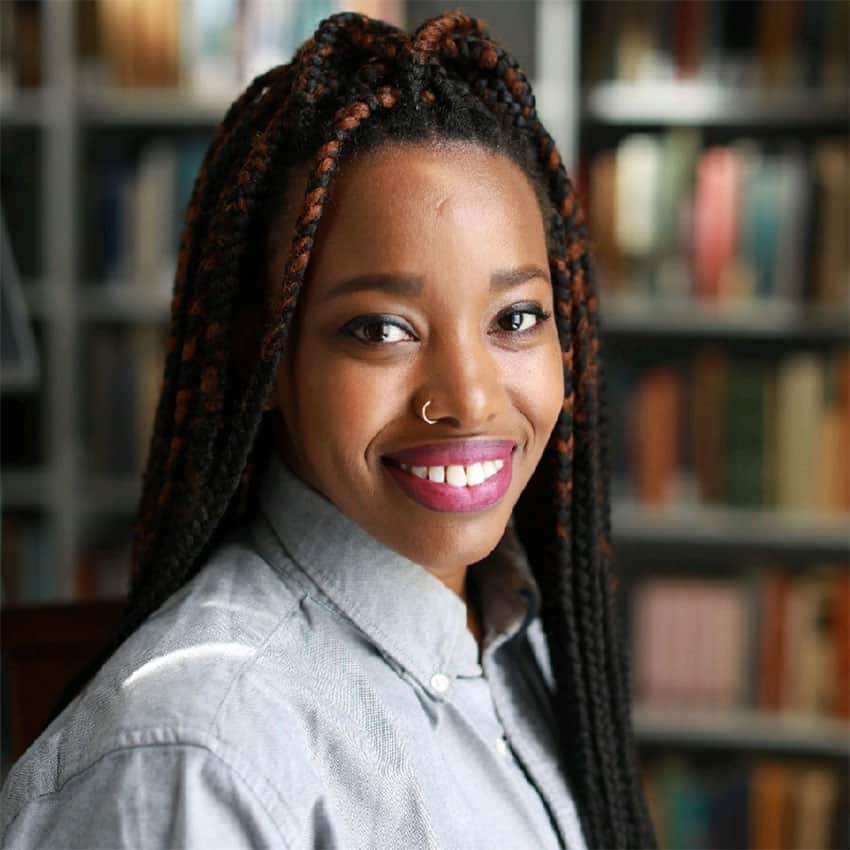
Although she admits it “sounds corny,” Chandell Stone considers herself a global citizen, “not just because I traveled to a lot of places but because I’ve done a lot of community work — building community…” she says.
That global citizenship comes through as a “…dynamic educator and serial social entrepreneur,” as she describes herself on LinkedIn. She has a particular interest in working with women and those of the African diaspora.
Stone’s career began in her hometown of New York City, working with low-income students. Soon after, she established a number of for-profit and nonprofit organizations to work with people in Africa and Latin America. Her imaginative ideas led to becoming an Investment Fellow with the Kapor Center, a venture capital firm that has supported some of her recent projects.
Stone’s first experience of Mexico came in 2018.
“And for me, Mexico City, I don’t know. I just really connected with it in a lot of ways,” she recalls. She decided that if she had the chance to come back, she would, which happened in 2021, working with a program called 3-Day Startup, a Cornell University entrepreneurship education program where college students are guided in starting a tech company in three days.
That got her living in Mexico, but she didn’t yet have a real reason to be here. Stone has one of those personalities that is never satisfied working for someone else. Already experienced in securing venture capital, it seemed natural to start a business to help others do the same — hence Chany Ventures.
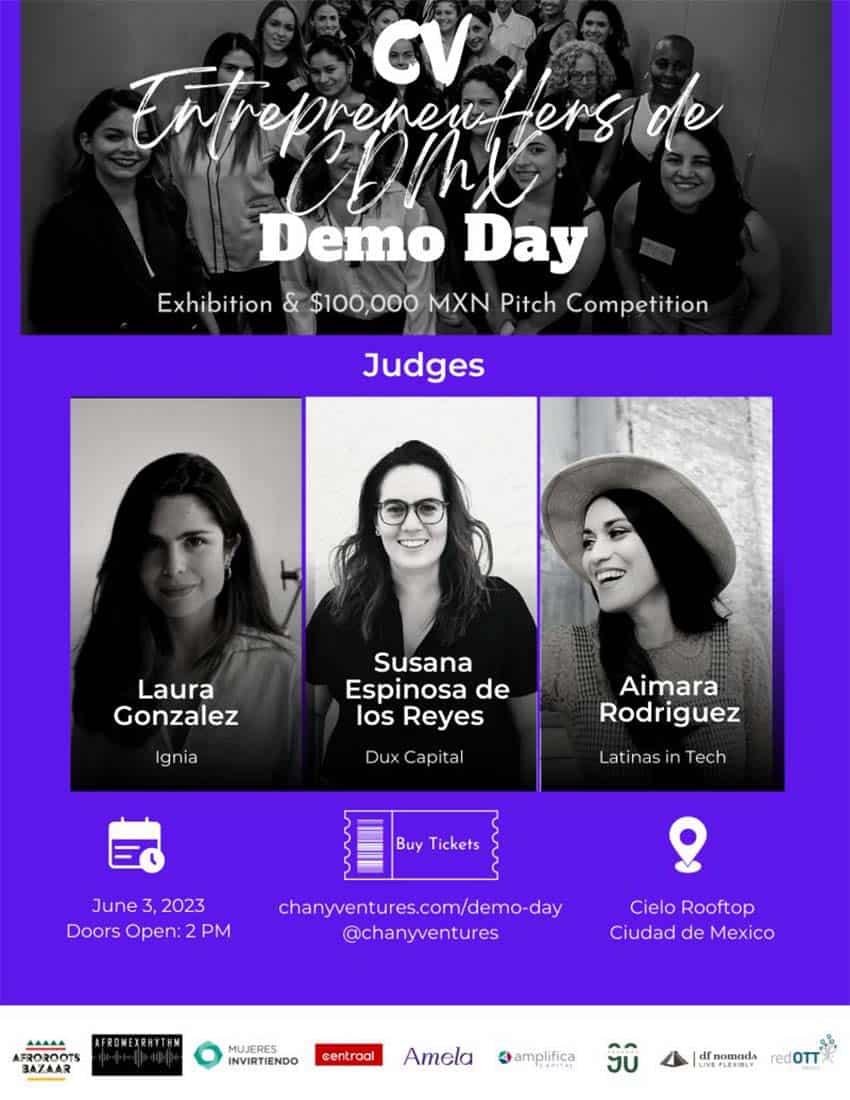
Her first clients came mostly from her own contacts. But she quickly attracted both Mexican and foreign women, noting that they were “…Black women from the U.S. or from Africa and Mexican women, and just seeing how many misconceptions both groups had about one another and yet how many similarities there were in terms of their hopes, their dreams, their struggles when it came to business…”
In essence, Stone is importing to Mexico the concept of an accelerator program for entrepreneurs, which offers expert help in developing business ideas.
Despite Mexico City’s notable population of career-aged foreigners from North America and Europe, from the start, Stone has focused her attention on women from marginalized groups — those that do not fit the “white male profile” either in looks or outlooks on life.
Although she sponsors other activities, Stone’s flagship program is EntrepreneuHers, which assembles cohorts of budding female entrepreneurs she calls FoundHers and takes them through the steps of developing an idea into a business, generally with the aim of attracting investment.
FoundHers not only learn from experienced businesspeople but also from each other as they progress. The interactions in a women-only space are exceedingly important because the FoundHers feel far more confident sharing stories, feelings, doubts and questions.
In addition, Stone insists on racial and socioeconomic diversity in the cohorts, although most participants are young. The multicultural aspects, Stone says, helps people “get out of their own bubbles [comfort zones],” which is also necessary for successful entrepreneurship, she says.
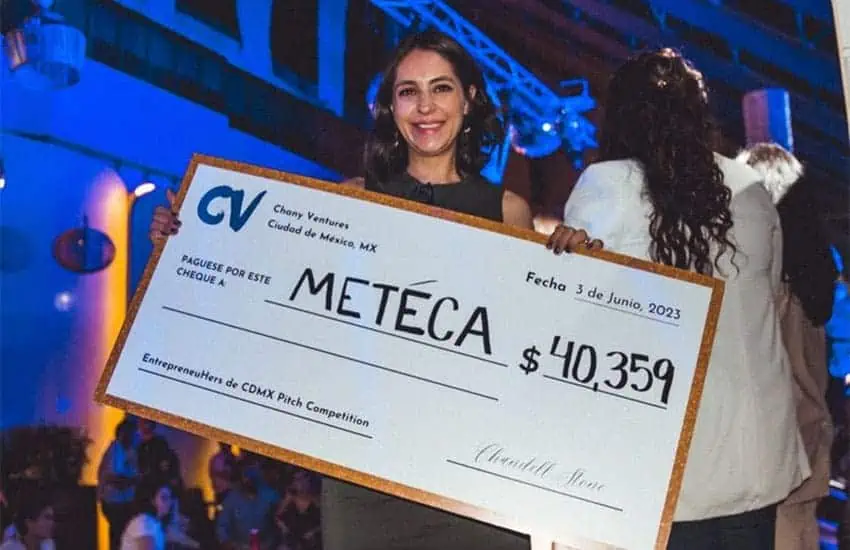
But perhaps the most important service that Chany Ventures provides is to support the kind of women who themselves would doubt their own ability to start a business. Often she finds it best not even to push the goal of attracting venture capital, rather use the term “medium-sized business.” At least until such women get more confident, she says.
“…once they are started and see more possibilities, support is already there for them.”
Nor does Chany Ventures look for “the next big thing” the way many similar businesses do.
“[FoundHers] need an opportunity to have experience with business first. It is a bit of a cop-out to exclude women who are building smaller things because the process to start a small business is exactly the same as those who start out new tech from scratch.”
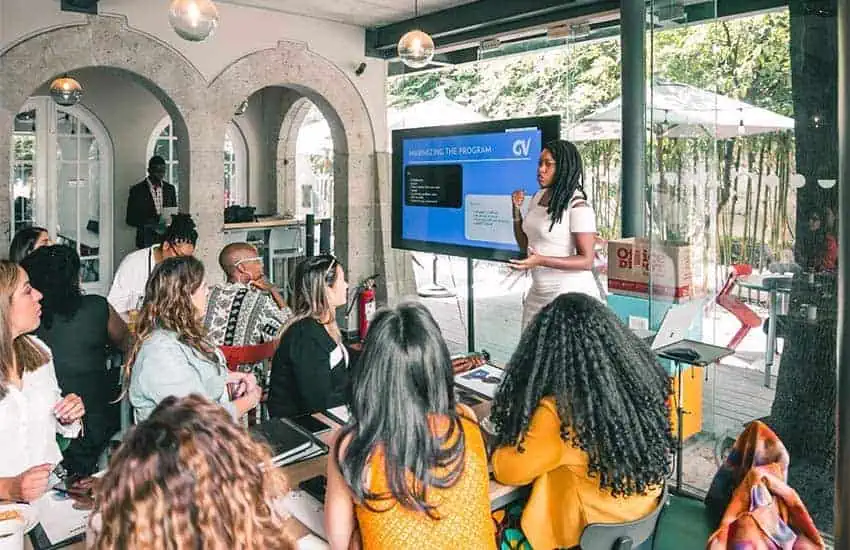
At a recent showcase for the 2023 cohort, there was an impressive range of business ideas — from products made from pineapple waste to an AirBnB alternative, as well as waist jewelry and technology to process pap smears faster in Mexico.
Although based in Mexico City, Stone believes Chany Ventures and the businesses it incubates add to the entire Mexican economy. One reason is that the cohorts and many of their businesses are international.
The 2023 cohort was … 90% Latina, indigenous and Black — women from all over the Americas,” she said. Many of the businesses have an international outlook in the markets they serve.
Next, there are precious few accelerator programs in Mexico at all, and almost nothing specifically geared towards women.
“When most people talk about diversity initiatives, whether it be for a venture capital firm or an accelerator or something of that nature, what they mean is that they want to pull in the top 10% of people who [fit the] profile that they are normally pattern-matching with.”
In other words, they might look for people who look different, but want people who can most easily assimilate with existing hierarchies.
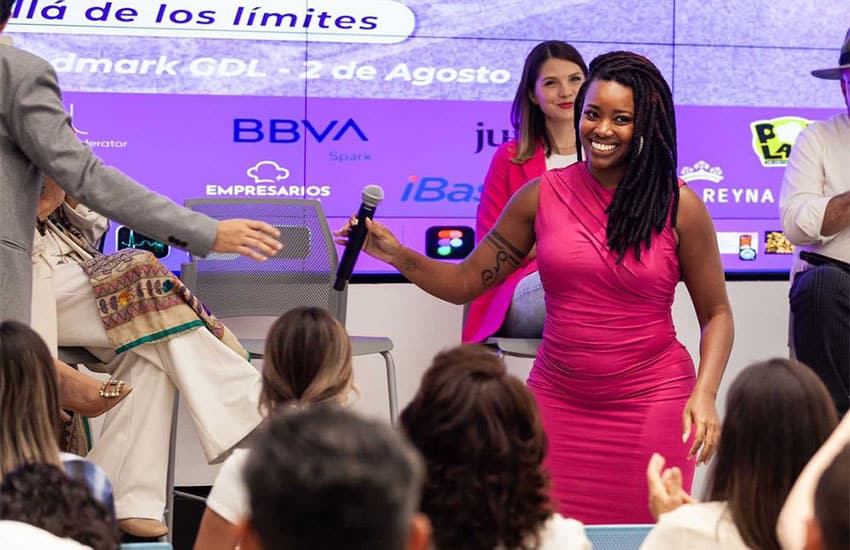
Stone emphasizes that Mexico presents opportunities simply not available in other countries. Despite Mexico’s well-known economic and bureaucratic problems, “There is still so much innovation that can take place in Mexico. There are still so many gaps in the markets here that can be filled by people not in the 1%. It would be very challenging, especially in more developed countries, to go about making headway.”
That includes Chany Ventures itself, as the accelerator market in the U.S. is “saturated,” she says.
The cohort cycle culminates in Demo Day, when FoundHers all demonstrate what they have achieved and pitch their companies to 20 accredited venture capitalists and angel investors, in an informal, almost party-like atmosphere.
Despite only a couple of years operating in the country, all of the potential investors this year were Mexican, and 90% were female, including the three judges. The winner was Mariana Miranda of Metéca with her Mexico-made organic skincare line because she has already successfully partnered with major cosmetics company Sephora. However, one winner does not mean only one person secured financing and other opportunities that day.
The response to EntrepreneuHer has been phenomenal, both in terms of startups and investment support, in no small part because there is interest in Mexico in supporting women entrepreneurs. The first two cohorts concluded in Mexico City, but 2024 cohorts planned for not only the capital but also Guadalajara, Monterrey and online.
Although she maintains her international outlook, Stone is committed to developing Chany Ventures from Mexico.
Meet the women of the 2023 cohort in this video.
“There are a lot of women’s rights issues in Mexico, which makes folks really galvanize around the idea of supporting women in a way that’s really powerful,” she says.
Given Stone’s energy and commitment, her team and her FoundHers, we could be seeing the start here of something big.
Leigh Thelmadatter arrived in Mexico over 20 years ago and fell in love with the land and the culture in particular its handcrafts and art. She is the author of Mexican Cartonería: Paper, Paste and Fiesta (Schiffer 2019). Her culture column appears regularly on Mexico News Daily.
Source: Mexico News Daily

